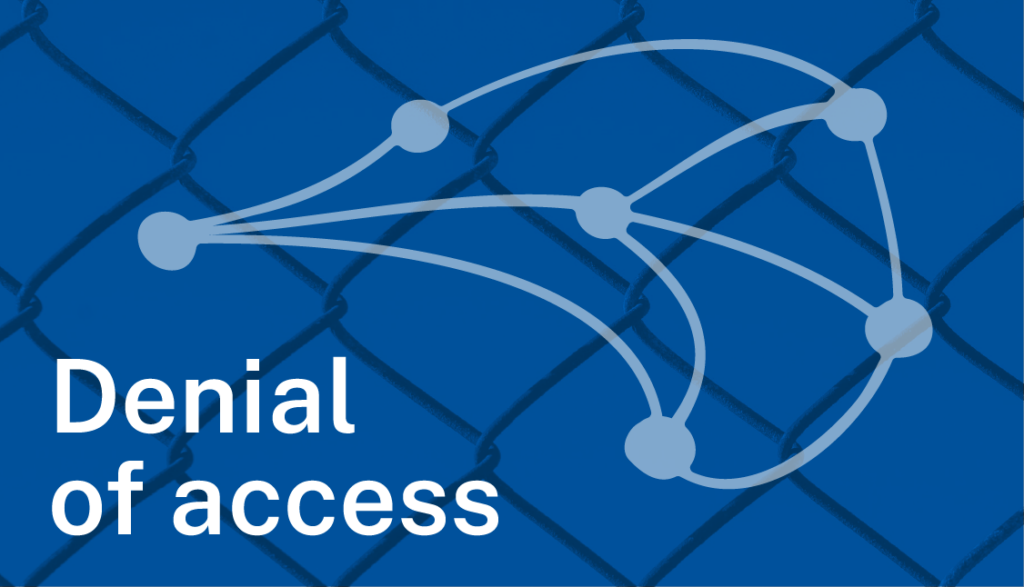The RCMP arrested and removed a protester during demonstrations against old-growth logging in the forest near Port Renfrew, B.C., after telling journalists to leave the area and that enforcement had ended for the day.
The incident is described in a written submission filed by media and press freedom organizations in B.C. Supreme Court in July 2021, as part of a lawsuit challenging the RCMP’s obstruction of journalists during the Fairy Creek protests.
RCMP media officers escorted journalists into the area where police were arresting protesters, media officer Kristen Clark said in an affidavit filed in the same court case.
According to Clark’s affidavit, police arrested all but one protester, who was “hanging in a cantilever off the side of a bridge.” Officers needed specialized help from the RCMP Emergency Response Team to remove the protester, but the team wasn’t available, Clark said.
Police then told journalists to leave the area, according to an affidavit from Ricochet editor Ethan Cox. In her affidavit, Clark said she and another officer escorted journalists out of the area.
After the journalists and Clark had left, Clark said she heard over the police radio that the ERT was available to remove the protester.
Clark said she chose not to pass the message on to journalists because she was in an area without cell service and believed that the ERT would have finished arresting the protester by the time she drove to an area with service, called journalists and drove with them back to the enforcement area.
This incident took place during protests against old-growth logging on southern Vancouver Island, on the territory of the Pacheedaht and Ditidaht First Nations, between Aug. 9, 2020 and Sept. 28, 2021.
Police enforcement, arrests, and most media coverage of the blockades took place after logging company Teal-Jones obtained an injunction from the B.C. Supreme Court on April 1, 2021, which banned blockades of logging activities in the Fairy Creek and Caycuse watersheds.
By Aug. 2021, the Fairy Creek blockades and protests were approaching the record for the largest act of civil disobedience in Canada’s history, reported The Narwhal.
Concerns over press freedoms arose during police enforcement in 2021 due to numerous incidents where media workers were denied access to raid sites, intimidated and arrested by the RCMP.
On May 26, 2021, the Canadian Association of Journalists and a coalition of news organizations and press freedom groups, including Ricochet Media, The Narwhal, Capital Daily, Canada’s National Observer, APTN, Canadian Journalists for Free Expression, The Discourse and IndigiNews, said they planned to take the RCMP to court over excessive restrictions on media.
The court ruled in their favour on July 20, 2021, with B.C. Supreme Court Justice Douglas Thompson affirming media rights by adding a clause to the injunction instructing the RCMP not to interfere with press access unless there was a clear and genuine operational reason to do so.
Despite the court order, RCMP officers continued to restrict media access. Police arrested a Victoria Buzz photojournalist and seized his equipment at the main Fairy Creek blockade on Aug. 10, 2021, and threatened to arrest media workers or refused to allow them through police lines on multiple occasions after the ruling.
On Sept. 28, 2021, a B.C. Supreme Court justice refused to extend the initial injunction, saying RCMP enforcement of the order “led to serious and substantial infringement of civil liberties, including impairment of the freedom of the press to a marked degree.”
On Jan. 26, 2022, the B.C. Court of Appeal reinstated and extended the injunction to Sept. 26, 2022.
The B.C. Supreme Court later extended the injunction again until Sept. 26, 2023. In that decision, Justice Thompson reiterated his earlier criticism of the RCMP’s media obstruction, noting that the RCMP’s “expansive exclusion zones, and associated checkpoints and searches, were unlawful, and that the degree of interference with liberties of members of the public and the media was substantial and serious.”

